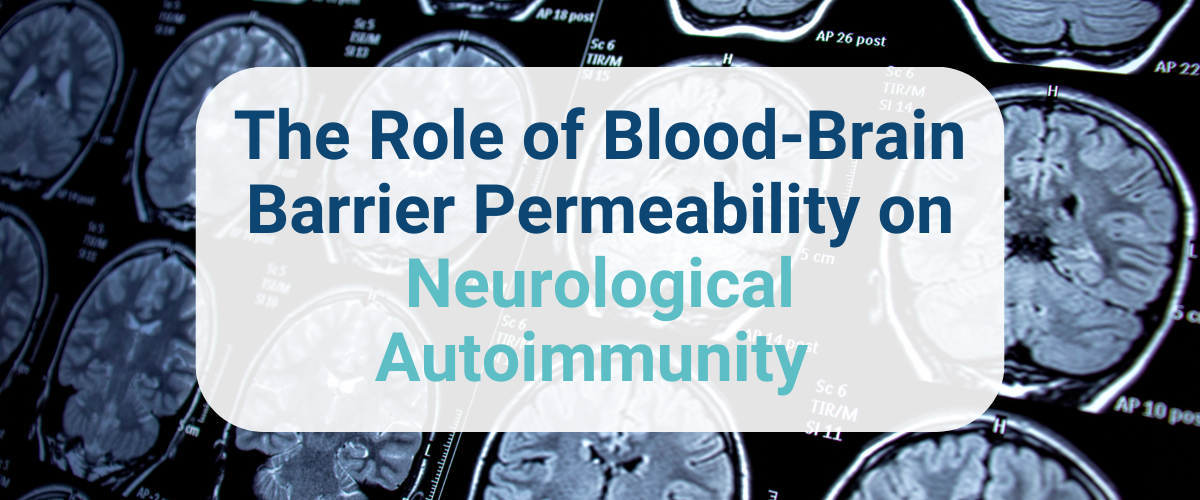A Dietitian's Take on Hack Your Health: The Secrets of Your Gut

In today's fast-paced world, it can be challenging to prioritize health amid busy schedules and endless distractions. Yet, the importance of maintaining a healthy lifestyle cannot be overstated—particularly when it comes to gut health.
But for many, the gut is a mystery.
As a functional dietitian nutritionist, I can affirm that what you eat impacts your gut, and gut health plays a key role in overall well-being. In fact, I specialize in resolving functional gut disorders like IBS and work with clients who feel bloated after eating, suffer unpredictable bouts of diarrhea, and struggle to lose weight despite restricting calories.
What do all these clients have in common?
Imbalances in their gut microbiome.
That's why I was excited to watch Netflix's Hack Your Health: The Secrets of Your Gut. This documentary delves into the intricacies of the gut microbiome and its crucial role in our overall well-being, offering a fresh perspective on optimizing our health through diet and lifestyle choices.
In this blog post, I’ll discuss three key takeaways from the documentary that particularly resonated with me, offering practical tips for improving gut health based on the latest research and insights.
Table of Contents
Always Be Counting: Plants, Not Calories

One of the most striking revelations in Hack Your Health is the emphasis on counting plants rather than calories. Traditional diet advice often revolves around calorie counting, which can overshadow the importance of the variety and quality of the foods we consume. The documentary advocates for a more holistic approach by recommending that we eat 20-30 types of plants (vegetables and fruits) per week.
Why is this important?
Your gut microbiome (all the microbes living in your gut) thrives on diversity. Different plant foods provide various fibers, phytonutrients, and antioxidants that nourish distinct microbial species in our gut. This variety supports a balanced and resilient microbiome, which can have far-reaching impacts on digestion, immune function, and even mental health.
In general, higher microbial diversity is associated with better health.
According to the 2018 American Gut project paper, eating 30 types of plants per week is associated with greater microbial diversity than self-reported categories such as being “vegan” or “vegetarian.” This is because it’s possible to be vegetarian and only eat white bread and cheese pizza, which contains little to no fiber.
Understanding Fiber Needs: The Importance of Meeting Daily Goals

Speaking of fiber, NHANE data suggests that the standard American gets only 16 grams of fiber daily. However, the 2020-2025 Dietary Guidelines for Americans recommends eating 25-38 grams per day.
Furthermore, in Hack Your Health, Stanford microbiologist Dr. Justin Sonnenburg reveals that “the field of microbiome science is realizing that we probably should be eating in excess of 50 grams per day.”
Plants Over Processed: Why Whole Foods Matter
Another reason I recommend my clients eat more plants is because they help balance blood sugar and lower inflammation in the body. In contrast, processed foods (anything made with sugar, high fructose corn syrup, or enriched wheat flour) digest quickly and spike blood sugar, driving inflammation.
Dr. Giulia Enders, MD, explains this perfectly in Hack Your Health:
"If the front part of your body was see-through, you could actually see digestion and would be able to very easily see the difference between processed foods and vegetables. With processed foods, within the first centimeters of the small intestine, it’s basically all taken up in the blood. There’s a surge of sugar in the bloodstream. And we have to pack it in the cells really fast. It’s…almost a stressful event.
It really has to push it [sugar] everywhere. But with the fiber we have in vegetables, it’s just more stable. It would be taken up a little bit. Go further...It would even land in the colon. It would be a good source of food for the microbes there. So, it’s a completely different mode of digestion.”
How to Hack Your Health with Plants
To incorporate more plants into your diet and improve your gut health, consider the following tips:
Aim for 30 Plants per Week
Setting a goal to eat 30 different types of plants each week can help you maintain a diverse and resilient gut microbiome. This variety includes vegetables, fruits, legumes, nuts, seeds, and whole grains. By keeping track of the different plant foods you consume, you can ensure a broad range of fiber, phytonutrients, and antioxidants to support your overall health and gut diversity. This approach can also inspire creativity in your meals as you seek new foods to reach your weekly goal.
Try New Produce
Visit your local farmers' market to discover unique fruits and vegetables you may not have tried before. In addition to feeding diverse microbes, experimenting with new flavors and textures can make healthy eating more enjoyable.
Incorporate a Rainbow of Colors
Aim to include a wide range of colors on your plate. From red pomegranates and beets to green artichokes and asparagus to purple kale and cabbage, eating a rainbow of colors each day is one way to track variety. This visual variety often translates to a broader range of nutrients and fiber sources.
Explore Diverse Foods
Eating foods from a range of cultures can introduce you to new ingredients and unique ways of preparing and combining plant-based dishes. Not only can this make your meals more flavorful and enjoyable, but it also supports greater diversity in your gut microbiome by incorporating a wider variety of plants and spices. Different cuisines often emphasize the use of different herbs and spices, as well as plant foods that you may be unfamiliar with, giving your gut a chance to thrive on new sources of nutrients.
A Two-Way Street: The Gut-Brain Connection
The documentary highlights the fascinating relationship between the gut and the brain, often called the gut-brain axis. What we eat influences the types of microbes that grow in our gut. In turn, the microbes living in your gut can send messages to your brain, impacting everything from hunger signals and food cravings to mood and cognitive function.

For example, UCLA neuropsychologist Dr. Annie Gupta explains in Hack Your Health that people who lack Prevotella (a genus included in the Gut Zoomer) tend to have difficulty losing weight. She also explains that three specific bacteria (including Eubacterium biforme) are associated with producing a particular type of gut hormone that makes you feel full. Therefore, people who lack these bacteria may never feel full.
The Vibrant Gut Zoomer is an easy, at-home collection stool test that measures your levels of certain bacteria associated with easy weight loss and satiety signals—specifically Eubacterium, Eubacterium rectale, Prevotella, and Prevotella copri. According to a 2018 Gut Microbes review article, the more Eubacterium rectale you have, the weaker your hunger pangs. Additionally, this 2019 randomized controlled trial in The Journal of Nutrition affirms Prevotella abundance predicts weight loss success in healthy, overweight adults.
If your stool test results indicate low levels of Prevotella and Eubacterium, don’t worry!
You’re not stuck with low diversity forever. Simply increasing the diversity of vegetables and fruits you eat can help feed your good gut microbes. In addition to the affirmation they give in the documentary, I can affirm that I’ve seen this repeatedly in my private practice, Eating with Integrity. My patients' gut diversity improves after increasing plant intake.

Another fact to consider is that the gut-brain axis is a two-way street, meaning our mental and emotional states can also affect our gut health. For instance, stress and anxiety can disrupt gut function and alter the balance of our microbiome.
Many of my clients suffering from indigestion have low levels of pancreatic elastase-1 and increased fecal fat. By taking deep breaths and getting into rest-and-digest before meals, stimulating adequate digestive juice to digest, they find their gas, bloating, and stomach pain go away.
On a similar note, I’ve noticed a correlation between high stress (a stress rating greater than 7 out of 10, where 1 = low stress and 10 = high stress) and depressed levels of secretory IgA (sIgA, the immune system in your gut). Without a robust immune response, these clients are susceptible to foodborne illnesses like Campylobacter and E. coli and tend to get sick more often. When these clients work to manage their stress, their sIgA rises, and they can fight off infection.
You can learn more expert insights about the gut microbiome in this episode of The Vibrant Wellness Podcast, featuring Dr. Diana Stafford, MD.
Hacking Your Health with The Gut-Brain Connection

To support a healthy gut-brain connection, consider these strategies:
Take a Deep Breath
Each time you take a deep breath, you tell your body everything is OK. Every time you purposely slow your breathing, you stimulate your vagus nerve, activating the parasympathetic (a.k.a. “rest-and-digest”) nervous system and giving your body permission to calm down, to relax, and to get out of “fight-or-flight” mode. Try taking ten deep breaths before your next meal and see if you notice a difference!
Practice Mindful Eating
Mindful eating involves paying full attention to the eating experience, including the flavors, textures, and smells of your food. Up to 50% of your digestive juices are made during the cephalic phase of digestion—before food even enters your mouth! Breathing in food aromas and pausing to give gratitude before a meal can help your digestive tract get a head start on digestion. This practice can help you savor your meals and foster a stronger connection between your body and mind, supporting the gut-brain axis and improving your overall digestive health.
Incorporate Meditation
Meditation can be a powerful tool for supporting the gut-brain connection. By practicing meditation regularly, you can help reduce stress and anxiety, which in turn can promote a healthy gut microbiome. Meditation can improve your mood, enhance your focus, and contribute to overall well-being, all of which support a balanced gut-brain axis. Consistent meditation can foster a sense of calm and resilience, helping you navigate life's challenges with greater ease.
Explore Tai Chi
Tai Chi is a gentle form of exercise that combines slow, deliberate movements with deep breathing and meditation. Practicing Tai Chi can help reduce stress and improve overall mental and physical well-being, supporting a healthy gut-brain connection. Tai Chi can also promote better digestion by encouraging relaxation and enhancing circulation. By incorporating Tai Chi into your routine, you may feel more balanced, centered, and better able to support your gut health.
Incorporate Yoga
Yoga is a holistic practice that combines physical postures, breath control, and meditation to promote overall health and well-being. Practicing yoga regularly can help reduce stress and anxiety, positively impacting the gut-brain connection. Yoga poses that involve twisting can also improve digestion by stimulating movement in the digestive tract and enhancing overall circulation. Additionally, yoga's focus on mindfulness can help you become more attuned to your body's needs, supporting better eating habits and a healthier gut.
Fecal Microbial Transplants: Effective but With Risk
Hack Your Health discusses the emerging field of fecal microbial transplants (FMTs) as a potential treatment for various gut-related conditions. FMT involves transferring fecal matter from a healthy donor into a recipient's gut to restore microbial balance.
While FMT has shown promising results for certain conditions, such as recurrent Clostridioides difficile infections, it is essential to approach this treatment with caution. FMTs come with potential risks, including the transmission of infections and the unknown long-term effects on the recipient's gut microbiome.
For example, the woman in the documentary who took DIY fecal transplants from her sibling and partner ended up getting her brother’s acne and her boyfriend’s anxiety.
Since FMTs come with risks, I advise exploring less invasive approaches to gut health first, such as changes to your eating pattern and lifestyle. These can be highly effective in supporting a balanced gut microbiome without the risks associated with FMTs.
If you are considering FMT as a treatment option, it's crucial to work closely with a qualified healthcare provider to assess the risks and benefits and ensure that the procedure is performed safely.
Consider Stool Testing
Consider stool testing to gain a more comprehensive understanding of your gut diversity.
 The Vibrant Wellness Gut Zoomer is a cutting-edge tool that analyzes over 170 species of bacteria and gut pathogens along with markers of inflammation, digestion, and gut metabolites.
The Vibrant Wellness Gut Zoomer is a cutting-edge tool that analyzes over 170 species of bacteria and gut pathogens along with markers of inflammation, digestion, and gut metabolites.
It can show you if you have trouble making enough digestive enzymes, if you’re malabsorbing fat, whether you have enough commensal (good) bacteria, and if any bacteria are opportunistically overgrowing. Each marker is a clue, shedding light on the unique formula your gut requires.
This personalized information can help you make more informed dietary choices to support your gut and overall well-being.
By understanding your gut's specific needs, you can tailor your diet to improve your microbiome diversity and address any imbalances.
The Bottom Line
Netflix's Hack Your Health: The Secrets of Your Gut offers an engaging exploration of the importance of gut health. As a dietitian nutritionist, I wholeheartedly agree with the documentary's emphasis on eating 30 plants per week, understanding the gut-brain connection, and working on diet and lifestyle as foundational tools to improve and optimize gut health.
We can take meaningful steps toward optimizing our overall health by incorporating a diverse array of plant foods into our diets and prioritizing a healthy gut-brain axis.
Learn more about your gut:
Want to gain a deeper understanding of the essential role of your gut in your overall health?
Read these next:
- The Gut Barrier’s Role in Micronutrient Absorption
- The Surprising Impact of Stress on the Gut
- Balancing Estrogen: Why the Gut Microbiome Matters
- How to Develop a Gut Health Food Plan
- The Role of Functional Testing in Diagnosing Leaky Gut
- Research Spotlight: Gut Commensals and Their Metabolites in Health and Disease
%5B63%5D.jpeg?width=50&name=Adair-331%20(200x200)%5B63%5D.jpeg) By
By




